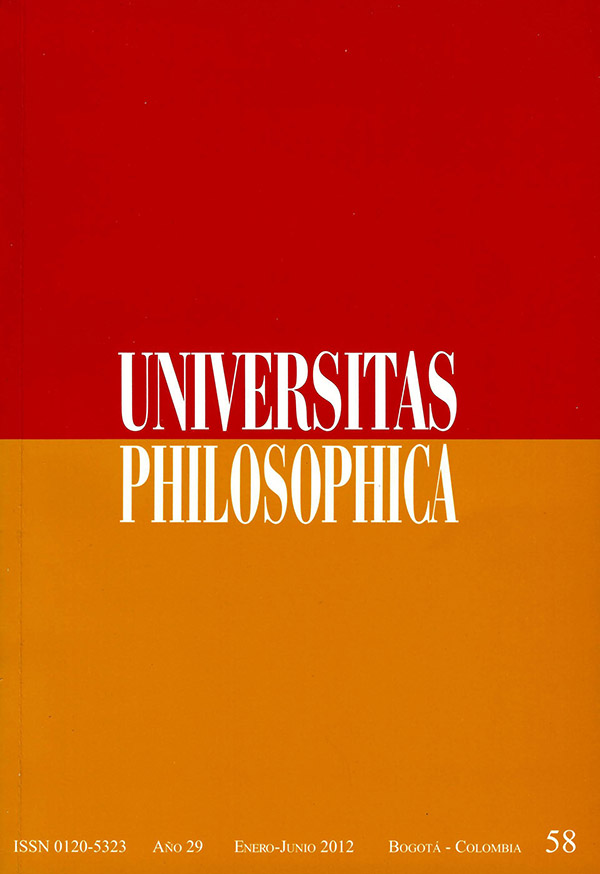Abstract
The question of what is called philosophy in Latin America has had at least two answers, two different philosophical attitudes. Or we speak of Philosophy in Latin America as the exercise of a universal discourse located in a particular space and time, or we talk about Latin American Philosophy as the particular way philosophical inquiry assumes from certain circumstances relating to questions on “identity” and “the national”. In Colombia, during the twentieth century, the tension between these two responses was experienced as a process where the first type of attitude became, from the professional viewpoint, the only possible form of philosophical exercise. This text narrates the experience of a professional philosopher in search of a place where both philosophical attitudes can dialogue without underestimate each other. This search is done by reflecting on the value of the history of philosophy (philosophical tradition) when the interests go beyond the canonized texts that tradition established.
This journal is registered under a Creative Commons Attribution 4.0 International Public License. Thus, this work may be reproduced, distributed, and publicly shared in digital format, as long as the names of the authors and Pontificia Universidad Javeriana are acknowledged. Others are allowed to quote, adapt, transform, auto-archive, republish, and create based on this material, for any purpose (even commercial ones), provided the authorship is duly acknowledged, a link to the original work is provided, and it is specified if changes have been made. Pontificia Universidad Javeriana does not hold the rights of published works and the authors are solely responsible for the contents of their works; they keep the moral, intellectual, privacy, and publicity rights.
Approving the intervention of the work (review, copy-editing, translation, layout) and the following outreach, are granted through an use license and not through an assignment of rights. This means the journal and Pontificia Universidad Javeriana cannot be held responsible for any ethical malpractice by the authors. As a consequence of the protection granted by the use license, the journal is not required to publish recantations or modify information already published, unless the errata stems from the editorial management process. Publishing contents in this journal does not generate royalties for contributors.


